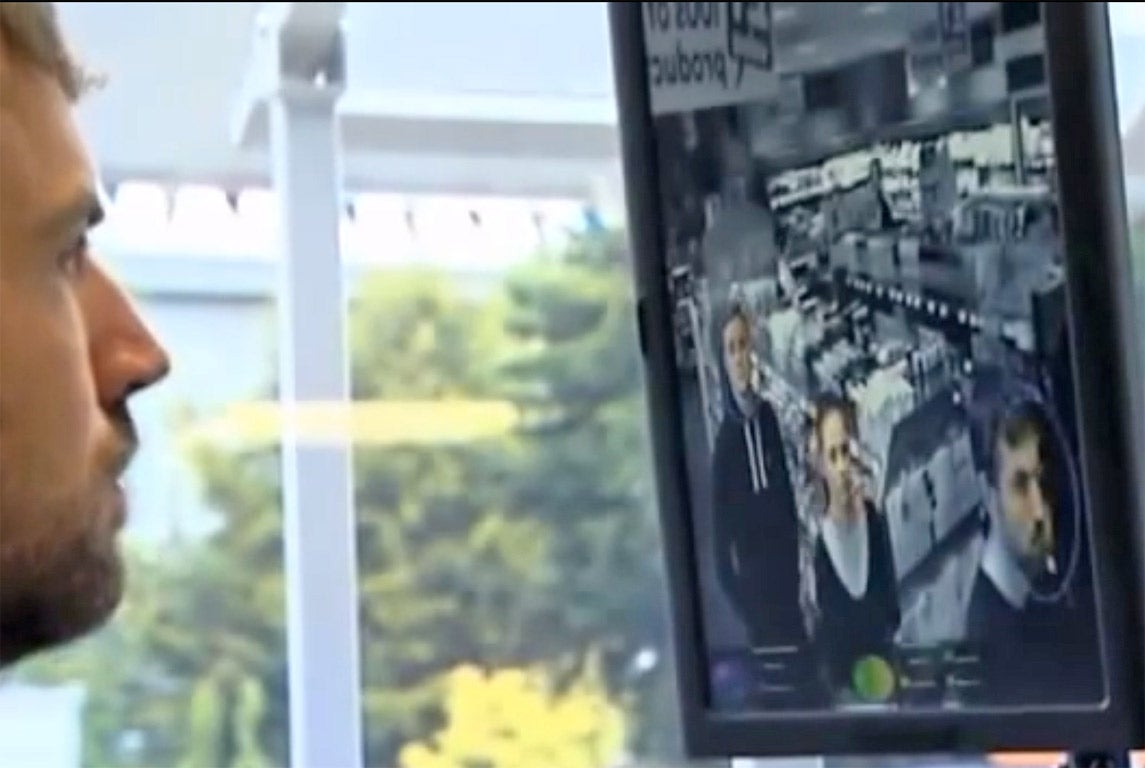Rhodri Marsden: Dear Tesco, our relationship is becoming a bit creepy

I'd like to invite you to play a mercifully short game that involves glancing at my byline picture and making broad generalisations about the kind of stuff I might like to buy. I'm evidently the embodiment of irresistible masculinity, so what do you reckon?
If you're thinking beer, bread and HDMI cables, you're probably not far off the mark – but technology is now making these kind of assessments with greater accuracy and slightly less coercion. Behold, the in-store TV screen with a camera that detects your age and gender, shows advertisements tailored to your perceived needs, and watches your disgusted reaction as it displays an ad for a Stannah stairlift.
These are soon to be unveiled in the starkly lit mini marts adjoining Tesco's 450 petrol forecourts. Going by the puntastic name of OptimEyes, they've been deftly slotted into the petrol-purchasing experience by Lord Sugar's Amscreen company and are, according to Sugar's son, set to "change the face of British retail" in a way that annoys people like me.
I first read about these screens in 2010. The Japanese company NEC announced a similar system, which would, it said, deliver particularly good results if the customer were standing still. (What better place to situate them than in an interminable queue to pay for petrol?)
But over the past three years, targeted advertising, both online and off, has provoked arguments that have become well-rehearsed and deeply entrenched. Those who rail against it are dismissed as paranoid; they're told that anonymous data analysis doesn't breach privacy, that fighting it will stymie the growth of the advertising industry and penalise companies who seek cost-effective advertising.

But you don't have to be a flag-waving privacy campaigner to find OptimEyes, "smart shelves" and other nascent technology of this kind, tediously invasive. At least with targeted online advertising you have the option to activate a "Do Not Track" setting in your browser; you can't do that in Tesco unless you upturn a basket and place it on your head, or avoid the place entirely and run out of petrol two miles up the road. Either way, it's a hollow victory.
Our senses are already engaged in a constant, low-level battle against sales pitches, whether it's screechingly loud TV ads or smells pumped out of the bakery section of the supermarket. Targeted schemes desperately try to create a two-way relationship with us, but it's one of those dysfunctional relationships in which the other person desperately wants you but you're barely interested in them.
The reassurance that the banishment of irrelevant ads will lead to a blissful utopia where sponsors' messages delight and engage us just doesn't ring true; these schemes aren't designed to be altruistic.
In Tesco's case, it's about categorising the five million people who queue up for their petrol each week according to age, gender and whatever categories future software upgrades might permit.
At least, for the time being, it'll fall short of the capabilities of the ad screens in the film Minority Report, which were described by their creator as being able to "not only recognise you, but also your state of mind". But in anticipation of such a time, maybe Tesco could line up a few ads specifically tailored for people who are feeling weary of being specifically tailored for.
Join our commenting forum
Join thought-provoking conversations, follow other Independent readers and see their replies
Comments
Bookmark popover
Removed from bookmarks